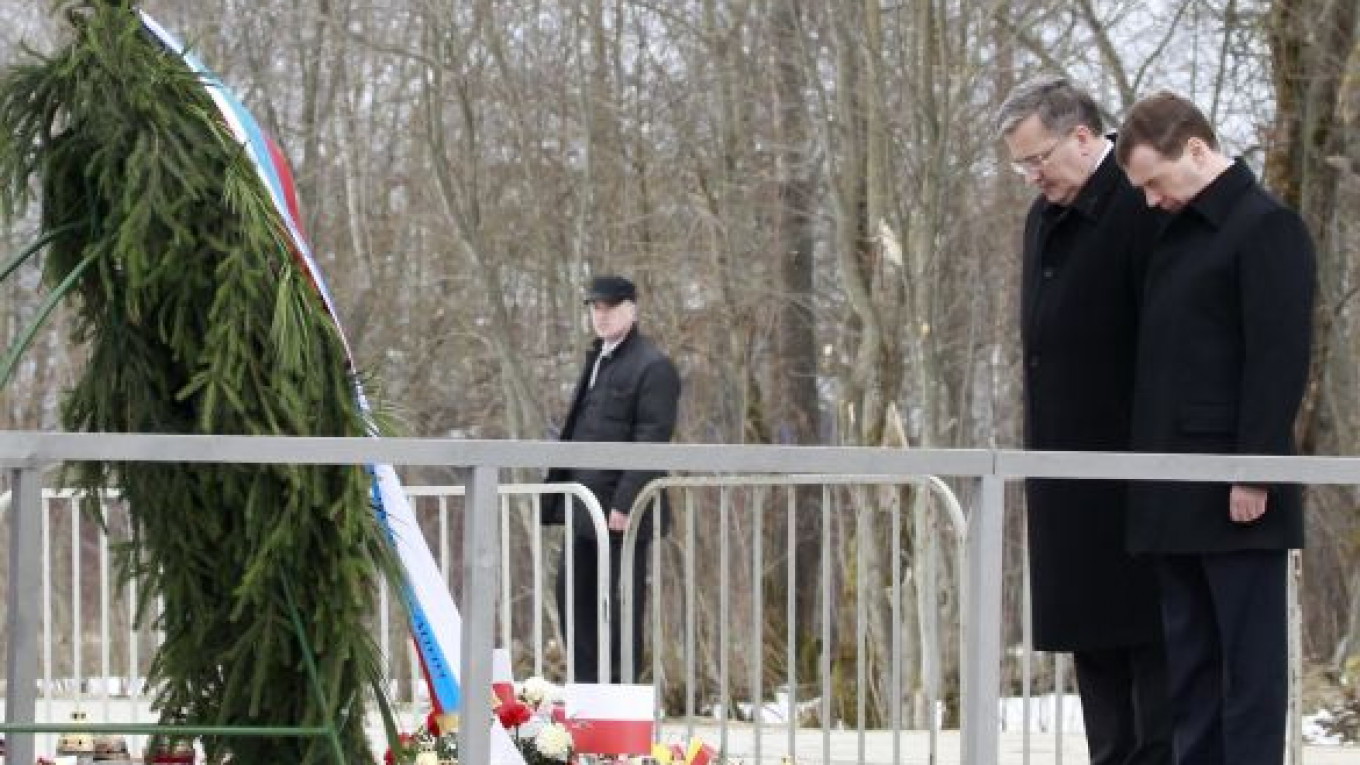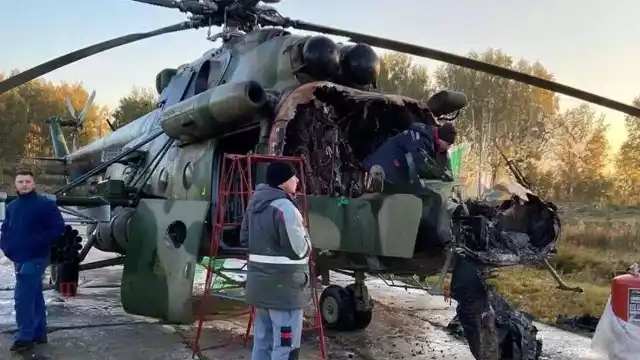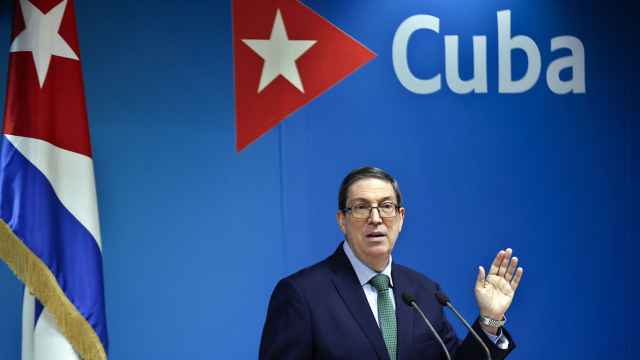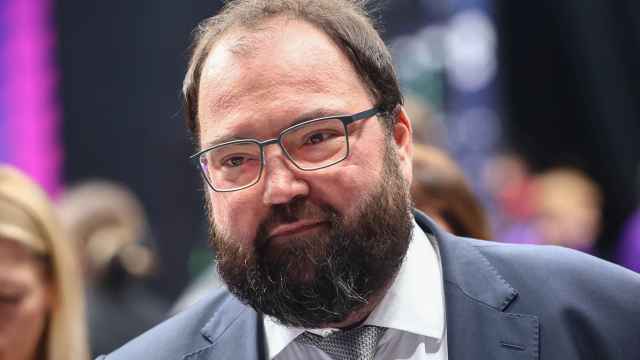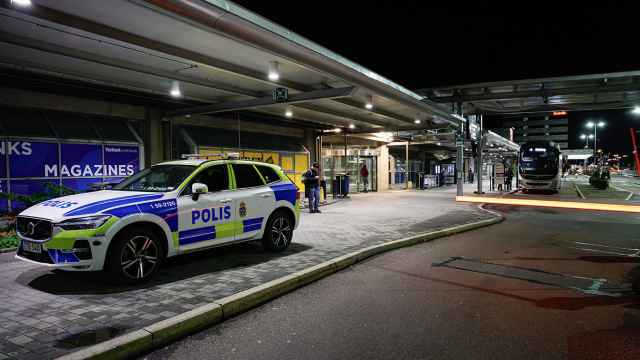The plane crash that killed Polish President Lech Kaczynski a year ago has managed to improve Moscow's troubled relations with Warsaw — but it has opened new divisions in Poland.
While Presidents Dmitry Medvedev and Bronislaw Komorowski on Monday commemorated the first anniversary of the tragedy in Smolensk, officials and analysts in Moscow brushed aside squabbles like that over the removal of a Polish-language memorial plaque at the crash site.
"The atmosphere has clearly improved a lot," said Vladislav Belov, an analyst with the European Studies Institute at the Moscow State International Relations Institute.
As an example that this has already led to tentative results, he pointed to Warsaw's decision last year to let Moscow partake in the Weimar meetings, a format for regular consultations between Poland, Germany and France.
Belov conceded that problems remain, exemplified by the plaque, which Smolensk authorities replaced over the weekend with a terse bilingual sign that omitted mention of what the Polish text had called the Katyn "genocide."
But he suggested that such incidents would be easily resolved. "I hope such reports will vanish quickly," he said.
The investigation into the crash, which killed 96 people, many of them high-ranking Polish officials, has also created fresh tensions as Warsaw accused Moscow of laying the blame solely on the Polish pilots while absolving Russian air traffic controllers.
Ruslan Kondratov, a State Duma deputy with United Russia, said these differences could be overcome because both sides had no choice but to revise their rocky relationship, which had become an "anachronism" compared with other European states.
Kondratov, a member of the International Affairs Committee, gleefully said he detected a recent shift in Warsaw's foreign policies away from the United States back to Russia. "Poland has understood that it should not build its foreign policy around just one country — the United States," he said in comments published on the party's web site.
But others in United Russia, the country's dominant party headed by Prime Minister Vladimir Putin, said ties with Poland would probably remain difficult.
"There was no turnaround yet, and Russophobia is still alive and well in Poland as was shown this weekend," Duma Deputy Sergei Markov said by telephone.
At a rally in Warsaw, people carried anti-Russian posters, and Polish police on Monday charged a man for burning an effigy of Putin.
"This is a very good example of the extreme irrational xenophobia still present there," Markov said.
The cause of the plane crash has become a highly divisive topic in Poland, with some even suggesting it was Russian sabotage.
In the face of this, former Polish President Aleksander Kwasniewski called for reconciliation and a sober analysis of the crash.
"Every society has its conspiracy theorists. The main task is to prevent the emergence of a 'Smolensk Secret' or a 'Smolensk Lie,'" he said in an interview with Komsomolskaya Pravda published Monday.
A Message from The Moscow Times:
Dear readers,
We are facing unprecedented challenges. Russia's Prosecutor General's Office has designated The Moscow Times as an "undesirable" organization, criminalizing our work and putting our staff at risk of prosecution. This follows our earlier unjust labeling as a "foreign agent."
These actions are direct attempts to silence independent journalism in Russia. The authorities claim our work "discredits the decisions of the Russian leadership." We see things differently: we strive to provide accurate, unbiased reporting on Russia.
We, the journalists of The Moscow Times, refuse to be silenced. But to continue our work, we need your help.
Your support, no matter how small, makes a world of difference. If you can, please support us monthly starting from just $2. It's quick to set up, and every contribution makes a significant impact.
By supporting The Moscow Times, you're defending open, independent journalism in the face of repression. Thank you for standing with us.
Remind me later.



